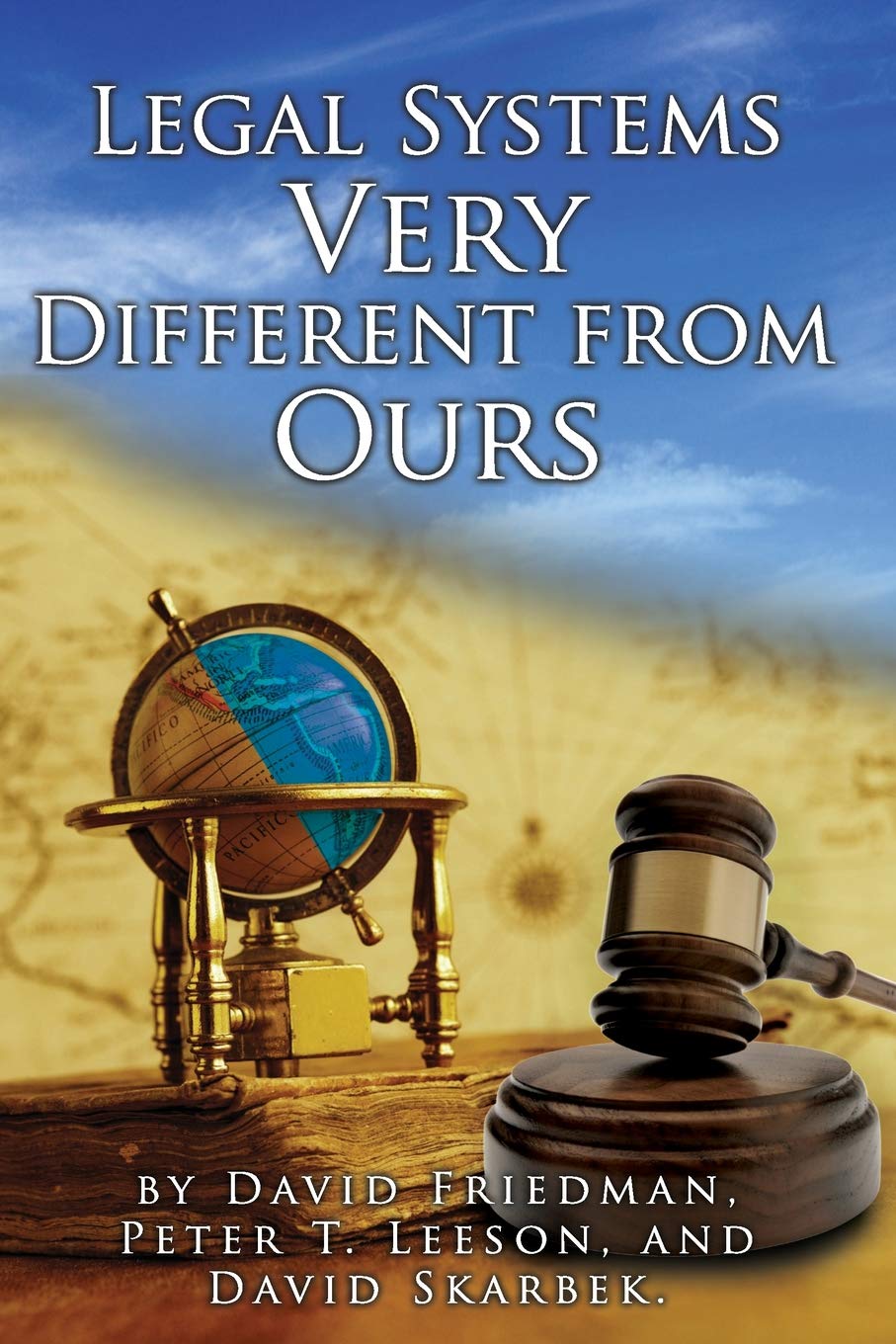Legal Systems Very Different From Ours
This article originally appeared in the May/June 2024 issue.

Legal Systems Very Different From Ours.
David Friedman et alia.
Independently published
366pp., paperbound or e-book (Kindle)
US$14.00(p)$5.00(e)/UK£10(p)£3.89(e)
First: Professor Friedman has a copy of a late (near-final) draft of this book on his website, available at no charge. My review is based on this draft, not the final production.
Second: This is not light reading. It was written in connection with a university seminar on legal systems, for students at that level with an interest in law. That said, it’s written clearly enough that someone not having that focus on law can get something out of it, and while it necessarily does not go into depth on the cultural context in which the various legal systems discussed arose, he does show some of that context, and discusses why some of them may have evolved the way they did.
Third: Normally, I’d probably have placed this as “Off the Table” rather than “Other People’s Toys”, but in this case, the information presented is too useful for worldbuilding, and placing it with other books “intended” to be borrowed from seemed a better choice.
The book naturally divides into two sections: The first section gives an overview of how various legal systems operate, where the power resides, and how it’s exercised. Many of the examples are for societies that no longer exist, or which have evolved past the conditions that led to these systems; some are for social groups that are embedded in but separate from a wider society, and may have had to come to accommodations with that wider society. This will provide ideas to the Traveller world-builder, but those ideas should not be taken in isolation; each aspect of the system is an answer to a particular difficulty that the society faced in the process of developing its laws.
It is looking at those problems, and analysing how they might be addressed, that is the second section of the book. Here, various factors that influenced the development are looked at, including things like the source of the law, the societal objectives for the law, the size and organization of the societal grouping it needed to be effective for, and so on. It also discusses the conditions under which classes of professional legalists arise, and possible alternatives to such, even in modern societies. The development of the distinction between tort law (between individuals) and criminal law (against the society) is also discussed, and to what extent the distinction can be considered necessary.
Another important aspect of the development of law within societies is balancing the likelihood of enforcement of penalties for infractions against the seriousness of the infraction, and to what extent it is advantageous to prosecute the infraction versus the gain that the infractor can expect to realize if enforcement fails. Different methods of enforcement are discussed, and how they fit into a society’s view of itself.
In discussing how certain structures and mechanisms arise, similarities are noted between otherwise unrelated societies, and how those similarities might give rise to similar mechanisms. When a society changes, so too must its legal system, and this is discussed as well, allowing the reader to notice when ‘modern’ systems appear to have aspects that may well be remnants of or developments from the earlier system(s).
Overall, I think this book is a worthwhile one for any worldbuilder to have; it provides a look at an aspect of worldbuilding that is often overlooked, or simply assumed to work either as a familiar system does or as a parody or perversion of a familiar system.
 Freelance
Traveller
Freelance
Traveller